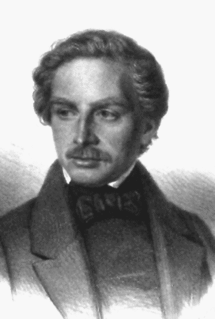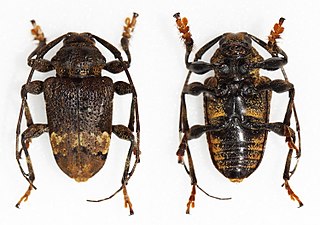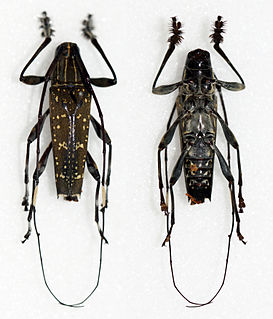| Anisopodus strigosus | |
|---|---|
| Scientific classification | |
| Kingdom: | |
| Phylum: | |
| Class: | |
| Order: | |
| Family: | |
| Genus: | |
| Species: | A. strigosus |
| Binomial name | |
| Anisopodus strigosus (Erichson, 1847) | |
| Synonyms [1] | |
| |
Anisopodus strigosus is a species of beetle in the family Cerambycidae [2] that was described by Wilhelm Ferdinand Erichson in 1847. [2]

Beetles are a group of insects that form the order Coleoptera, in the superorder Endopterygota. Their front pair of wings are hardened into wing-cases, elytra, distinguishing them from most other insects. The Coleoptera, with about 400,000 species, is the largest of all orders, constituting almost 40% of described insects and 25% of all known animal life-forms; new species are discovered frequently. The largest of all families, the Curculionidae (weevils) with some 83,000 member species, belongs to this order. Found in almost every habitat except the sea and the polar regions, they interact with their ecosystems in several ways: beetles often feed on plants and fungi, break down animal and plant debris, and eat other invertebrates. Some species are serious agricultural pests, such as the Colorado potato beetle, while others such as Coccinellidae eat aphids, scale insects, thrips, and other plant-sucking insects that damage crops.

Dr Wilhelm Ferdinand Erichson was a trained medical doctor and a German entomologist.


